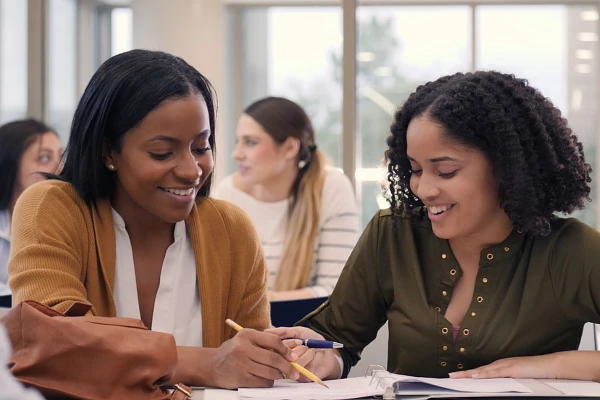by CampusESP | Estimated Reading Time: 2 minutes
College can be a challenging experience for any student, but it can be particularly difficult for students with learning differences. Learning differences, such as ADHD, dyslexia, and processing disorders, can make it harder to keep up with the academic demands of college. Fortunately, there are academic support programs available to help students with learning differences succeed in college.
1. Disability Services
Most colleges and universities have a disability services office that provides accommodations for students with disabilities. These accommodations can include extended time on exams, note-taking assistance, and assistive technology. To access these services, students with learning differences must provide documentation of their disability and work with the disability services office to develop a plan for accommodations.
2. Tutoring Services
Many colleges and universities offer tutoring services to students who need additional support in their coursework. Tutors can provide one-on-one assistance with specific subjects, study skills, and time management. Some tutoring services may also be tailored to the specific needs of students with learning differences, such as offering strategies for reading comprehension or providing multi-sensory approaches to learning.
3. Learning Centers
Learning centers are typically separate from disability services and offer a range of support services for students. These may include academic coaching, study skills workshops, and specialized academic programs designed for students with learning differences. Learning centers can also provide assistive technology and other resources to help students succeed academically.
4. Peer Mentoring
Peer mentoring programs can be a valuable resource for students with learning differences. These programs match students with mentors who have similar experiences and can offer guidance and support. Peer mentors can provide academic and social support, help students navigate college life, and offer encouragement and motivation.
5. Counseling Services
College can be a stressful time, and students with learning differences may face additional challenges. Counseling services can offer mental health support, stress management strategies, and coping skills. Counselors can also help students address any anxiety or depression related to their learning differences and develop strategies for self-advocacy.
6. Assistive Technology
Assistive technology can be a valuable resource for students with learning differences. These tools can include text-to-speech software, speech recognition software, and digital note taking tools. Assistive technology can help students access information more easily, stay organized, and complete assignments more efficiently.
Academic support programs are important for all students to utilize, but can be especially impactful to the success of college students with learning differences. Disability services, tutoring services, learning centers, peer mentoring, counseling services, and assistive technology can all provide valuable support for students who need extra help to succeed academically. It's essential for students to take advantage of these resources to help them achieve their academic goals and thrive in college.



